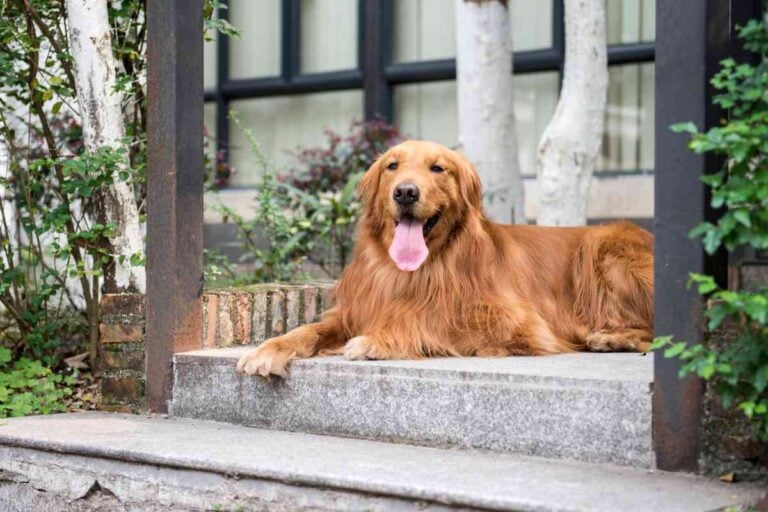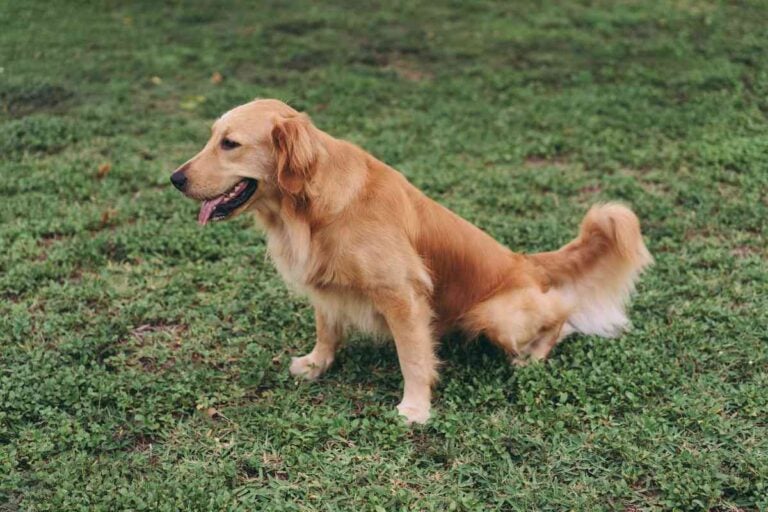Can Nova Scotia Duck Tolling Retrievers be left alone?
I recently adopted a Nova Scotia Duck Tolling Retriever. He is a wonderfully energetic puppy, but I have a lot to learn yet about this breed. One area that I am interested in is if I can leave him alone. I have to get back to work, and I don’t know what to expect.
With a thoughtful mind, I decided to do some research in the hopes it would inform me. Here is what I uncovered.
Can Nova Scotia Duck Tolling Retrievers be left alone?
Yes, Nova Scotia Duck Tolling Retrievers can be left alone for up to a typical eight-hour workday, but this depends on the individual dog and their personality and temperament. The Nova Scotia Duck Tolling Retriever can be left alone if they have some things to distract them in the pet parents’ absence, like toys that stimulate their mind and mouth. They can be left alone if they have been adequately exercised before they are left alone, as well as that they have used the bathroom.
This breed can be left alone, but sometimes it is better to have a trusted friend or family member come and check on them if the time is to be longer than a few hours as they can struggle with separation issues. Each dog in this breed will be unique, and not all dogs will suffer, but it depends on how strong the bond is between pet parent and dog.
The Nova Scotia Duck Tolling Retrievers can be left alone if the area they are kept in is safe for them, and they have food, or some treats as well as plenty of water. When they are left alone for any length of time, it can be helpful if the pet parent has a routine for when they leave the dog and when they come back to the dog.
The routine will teach the dog what happens passively to know that their owner will return. This helps with any separation issues that may arise. When the pet parent returns home, they should ensure that one of the first things they do after greeting the dog is to take them outside for a bathroom break.
Pet parents should be patient and understanding of the Nova Scotia Duck Tolling Retriever has an accident while they are away as these things do happen. If destructive behaviors happen while the pet parent is away and the Nova Scotia Duck Tolling Retriever is left alone, it can help review their training. Whatever the reason a Nova Scotia Duck Tolling Retriever is left alone, it should be well thought out and prepared for and have a routine that helps both dog and pet parent.
The Nova Scotia Duck Tolling Retriever is a dog breed that originated in Nova Scotia, Canada. While often likened to a smaller version of the Golden Retriever, this purebred dog breed can be considered a high-maintenance dog at times.
They are energetic, fun, and full of life. This breed likes to keep busy and be involved in whatever is going on around them right beside their family. They like the outdoors and love the water too. While they can suffer from separation anxiety at times, any dog can, regardless of breeding.
When it comes to leaving this dog breed at home, they can handle a regular workday, but any time beyond that is too long for any dog. If the time a family or pet parent spends away from their Nova Scotia Duck Tolling Retriever is to be longer than seven to eight hours, it is always best to have someone they trust to come and care for the dog.
No dog should be expected to hold their bladder and not use the bathroom for longer than this amount of time. Aside from the bathroom, having someone come into the house to look after them can help them not feel so lonely and sad because their loved one is gone.
This person can provide them with clean water, some food and ensure that the house and its contents are still safe as anything can happen when a pet parent is away. They can also provide much-needed attention and some love and playtime while they are visiting.
What is a good routine for leaving my Nova Scotia Duck Tolling Retriever home alone?
A good routine for leaving your Nova Scotia Duck Tolling Retriever home alone should begin with one last bathroom break.
This trip outside can provide the bathroom break and include a quick walk or a few tosses of a ball for fun.
After that, some treats should be given for good behavior and some snuggle time, even for big dogs.
Leaving a piece of clothing that the pet parent recently wore but didn’t wash can leave their scent behind for the dog to smell and lay on for sleeping. This provides comfort and closeness while the loved one is away from home.
The final step would be to use specific cue words that would be the same every time the loved one leaves home. They might include, “mommy is leaving now, I will miss you, I will be back. Be a good boy.” Or something like that.
If these words are said, and the pet parent leaves with time, the Nova Scotia Duck Tolling Retriever knows what to expect. The sequence of what is happening, meaning the events in a certain order with cue words train them. They won’t know when the pet parent will return but they will come to know that the pet parent, will return.
The same can be said for the return routine, including entering the house and getting down on the dog’s level to say hi for a kiss or quick snuggle. This can be followed by a trip outside for a bathroom break, a run through the yard, and a fun game. After that, inside for some sit-down snuggle time and then food.
After that, the pet parent can close this time out with, “Okay; now mommy is going to do some work. You are a good boy.” The pet parent can then go about business around the house or whatever they need to do.
This is important, including the final step, as the words also signal a transition or change in what is happening. With time all dogs learn what to expect from out behaviors, mannerisms, and specific words.
When they are combined in a particular sequence repeatedly, day in and day out, the Nova Scotia Duck Tolling Retriever can find a certain level of peace in knowing the routine. Okay, mom will be back later. I am going to play with my toys.
If my dog suffers from separation anxiety while alone, is it better to have someone come in and visit with them?
If your dog suffers from separation anxiety while alone, it can be beneficial to have someone come into the home and visit with them.
Nova Scotia Duck Tolling Retrievers and other dog breeds can have a hard time with the concept of time. Their loved one goes out that door, and it seems like an eternity before they return. Some dogs may never fully accept or comprehend the routine and struggle with the amount of time their loved one is gone.
These dogs may get bored quickly or lack the connection they need to feel happy and content. Having a trustworthy and loving person come into the home while the pet parent is away can be a great help.
This person can provide various services to the pet parent and dog and can even be beneficial for shorter periods. A friend to lean on while the loved one is away can bring happiness to the dog’s day. Some playtime, food, a walk, a snuggle on the couch, and some fresh food and water can make a big difference.
Certain dogs and dog breeds will have a tough time with their pet parent leaving, even if it is just for two hours. When this is an issue, doggie daycares and trusted friends or family can be valuable.
Potential pet parents who spend great lengths of time away from home on a repeat basis for whatever reason must consider how their lifestyle will affect a dog’s life. Many things must be considered when adopting a dog into a family, including their emotional and physical well-being.
Closing Points
Any dog can be left alone for a short time. Some dogs may struggle with being left alone for extended periods, in which case other methods must be activated to create harmony and peace for the dog.
With some handy tricks and ingenious methods, pet parents can go about the business of life while keeping their dog happy and content.
If, however, their lifestyle is challenging with regards to free time, in some instances, it may help to reaccess the lifestyle choices before welcoming a dog into the fold of home and family. Even with your dog, a loving relationship takes dedication, devotion, time, and energy to thrive!






